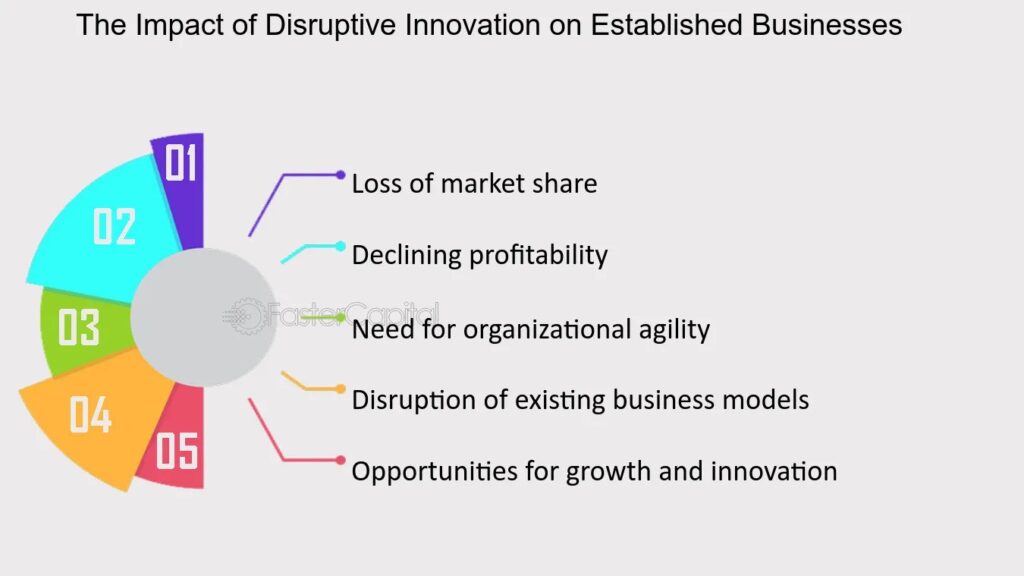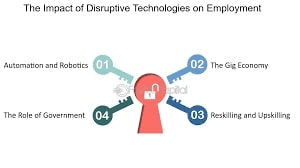Busbis 1660 Disruptive Technologies – Future of Innovation!

Using Busbis 1660 disruptive technologies has been a game-changer in my professional journey. The integration of AI and blockchain solutions has significantly improved my workflow and decision-making processes. These technologies have not only enhanced efficiency but also opened up new opportunities for innovation.
Busbis 1660 disruptive technologies are changing industries with new innovations like AI, blockchain, and IoT. These technologies are improving business operations, boosting efficiency, and creating growth opportunities. By adopting these advancements, companies can unlock new potential and stay ahead in a digital world.
we dive into the world of Busbis 1660 disruptive technologies! We’ll explore how innovations like AI, blockchain, and IoT are transforming industries and reshaping the future. Don’t miss out on the insights that could revolutionize your business approach.
Understanding Disruptive Technologies-Transforming the Future of Business!
Disruptive technologies radically change industries by offering new solutions that replace or improve existing ones. They create new markets or transform old ones, driving innovation and growth. To understand the impact of Busbis 1660 disruptive technologies, it’s important to recognize their core traits.
Key Characteristics of Disruptive Technologies:
- Radical Innovation: These technologies offer solutions that traditional methods cannot, reshaping industries.
- Affordability & Accessibility: They make once-expensive solutions more accessible, opening new market segments.
- Scalability: Once perfected, they scale quickly, disrupting industries worldwide.
- Performance Improvement: Over time, they become more efficient, reliable, and cost-effective, outpacing older solutions.
Key Disruptive Technologies by Busbis 1660 – Deep Dive!

Busbis 1660 disruptive technologies are poised to change the business landscape in profound ways. Let’s explore some of the most impactful ones and how they are shaping industries today.
Artificial Intelligence and Machine Learning:
Artificial Intelligence (AI) and Machine Learning (ML) are among the most transformative technologies in the modern world. These technologies enable machines to simulate human intelligence, analyze data, and make decisions autonomously.
Read: Xm9viesforyou – Let The Cinematic Adventure Begin!
How AI and ML Are Revolutionizing Industries?
Healthcare:
AI is improving patient care through enhanced diagnostics, personalized treatments, and drug discovery. Machine learning algorithms analyze medical data to predict patient outcomes, leading to more precise interventions.
Finance:
In finance, AI and ML power algorithmic trading, fraud detection, and personalized financial advice. AI systems can analyze vast amounts of data in real time, allowing for more informed decision-making.
Retail:
AI is revolutionizing the retail sector by providing personalized shopping experiences, predicting consumer behavior, and optimizing supply chains. Retailers use AI to recommend products and enhance inventory management, improving both customer satisfaction and operational efficiency.
What Is Blockchain and Decentralized Systems?
Blockchain is a decentralized, immutable ledger that records transactions in a secure, transparent, and tamper-proof way. While it’s best known for powering cryptocurrencies like Bitcoin, its applications extend far beyond digital currencies.
How Blockchain Works:
Blockchain technology operates through a distributed network of computers that validate and record transactions, creating a transparent, tamper-resistant database. This ensures the integrity of data, making it ideal for industries that require secure, verifiable transactions.
Applications of Blockchain:
Finance: Blockchain is disrupting the financial industry by enabling peer-to-peer transactions without the need for intermediaries like banks. It enhances security, reduces transaction costs, and speeds up payment processing.
Supply Chain Management: Blockchain offers unprecedented transparency in tracking goods from production to delivery. This improves supply chain efficiency, reduces fraud, and ensures product authenticity.
Healthcare: In healthcare, blockchain can securely store patient data, ensuring privacy and reducing fraud. It also enables easier access to medical records for healthcare professionals.
Quantum Computing:
Quantum computing represents a revolutionary shift in how we process information. Unlike classical computers, which use bits, quantum computers use qubits, allowing them to perform complex calculations at speeds unimaginable with today’s technology.
The Science of Quantum Computing
Quantum computers take advantage of quantum mechanics, allowing them to process and store vast amounts of data simultaneously. This enables them to solve problems that would take classical computers millions of years in a fraction of the time.
Applications of Quantum Computing
- Cryptography: Quantum computing will disrupt traditional encryption methods, pushing the need for quantum-resistant encryption to protect sensitive data.
- Drug Discovery: Quantum computing has the potential to simulate complex molecular interactions, speeding up drug discovery and enabling the creation of more effective treatments.
- Optimization: Quantum computing can solve complex optimization problems in industries like logistics, financial modeling, and manufacturing, creating more efficient systems.
The Future of Quantum Computing
Quantum computing is still in its early stages, but its future potential is vast. Once fully developed, it will unlock new possibilities for scientific research, cybersecurity, and industry innovation.
The Business Implications of Disruptive Technologies – Let Check!

Adopting disruptive technologies is not without its challenges. However, the benefits far outweigh the obstacles for businesses that are prepared.
Adoption Barriers and Challenges:
- High Initial Costs: The upfront costs of implementing disruptive technologies can be significant, especially for small and medium-sized enterprises (SMEs).
- Resistance to Change: Employees and management may resist adopting new technologies, especially if they require significant changes to existing processes.
- Regulatory Hurdles: Some disruptive technologies, such as AI and blockchain, face regulatory uncertainty, which can slow down their adoption.
Strategies for Leveraging Disruptive Technologies:
- Investing in R&D: Companies must continue investing in research and development to stay ahead of technological advancements.
- Building a Culture of Innovation: Encourage a mindset of innovation and adaptability within the organization to fully embrace disruptive technologies.
- Partnerships and Collaboration: Businesses can accelerate their adoption of disruptive technologies by forming partnerships with tech startups, universities, and research institutions.
- Agility and Flexibility: Adopting agile methodologies allows businesses to quickly adapt to changes and incorporate new technologies into their operations.
Read: Vaçpr – Experience The Future Of Technology
Busbis 1660’s Role in Driving Future Innovation – Navigate And Thrive!
Busbis 1660 has positioned itself as a leader in delivering cutting-edge disruptive technologies. With a focus on AI, blockchain, quantum computing, and 5G, the company has developed solutions that help businesses navigate and thrive in the digital age.
Case Studies:
Busbis 1660 has worked with several leading companies across industries to implement innovative solutions. These collaborations have resulted in enhanced productivity, reduced costs, and the opening of new revenue streams.
Impact of Disruptive Technologies – Must Read!

Businesses must prepare for the inevitable changes that disruptive technologies bring. Here’s how organizations can stay ahead of the curve:
- Upgrading Skills: Invest in training programs to ensure that employees can operate and innovate using the latest technologies.
- Scenario Planning: Develop contingency plans to manage the potential risks associated with disruptive technologies.
Read: Elisa Gayle Ritter – Let’s Take A Look!
FAQs:
What sets Busbis 1660 disruptive technologies apart?
Busbis 1660 disruptive technologies transform industries by offering new, cost-effective solutions that replace outdated systems, making them more accessible and scalable.
How can businesses use Busbis 1660 disruptive technologies?
Businesses can use these technologies by investing in innovation, staying agile, and partnering with tech leaders to open up new market opportunities
What challenges do businesses face with disruptive technologies?
Challenges include high costs, resistance to change, and the need for employee training. But with careful planning, businesses can overcome these hurdles.
Are these technologies just for tech companies?
No, industries like healthcare, manufacturing, and education can also benefit from adopting disruptive technologies to improve efficiency and reduce costs.
How can I keep up with the latest disruptive technologies?
Follow tech news, attend events, and subscribe to industry updates to stay informed and adapt quickly to new trends.
Conclusion:
In conclusion, Busbis 1660 disruptive technologies are transforming industries by introducing groundbreaking innovations. These advancements, including AI, Blockchain, 5G, and Quantum Computing, are reshaping the way businesses operate and creating new possibilities for the future.
To stay ahead, companies must embrace these technologies and adapt to the changing landscape, unlocking new growth and success opportunities.
Read:




